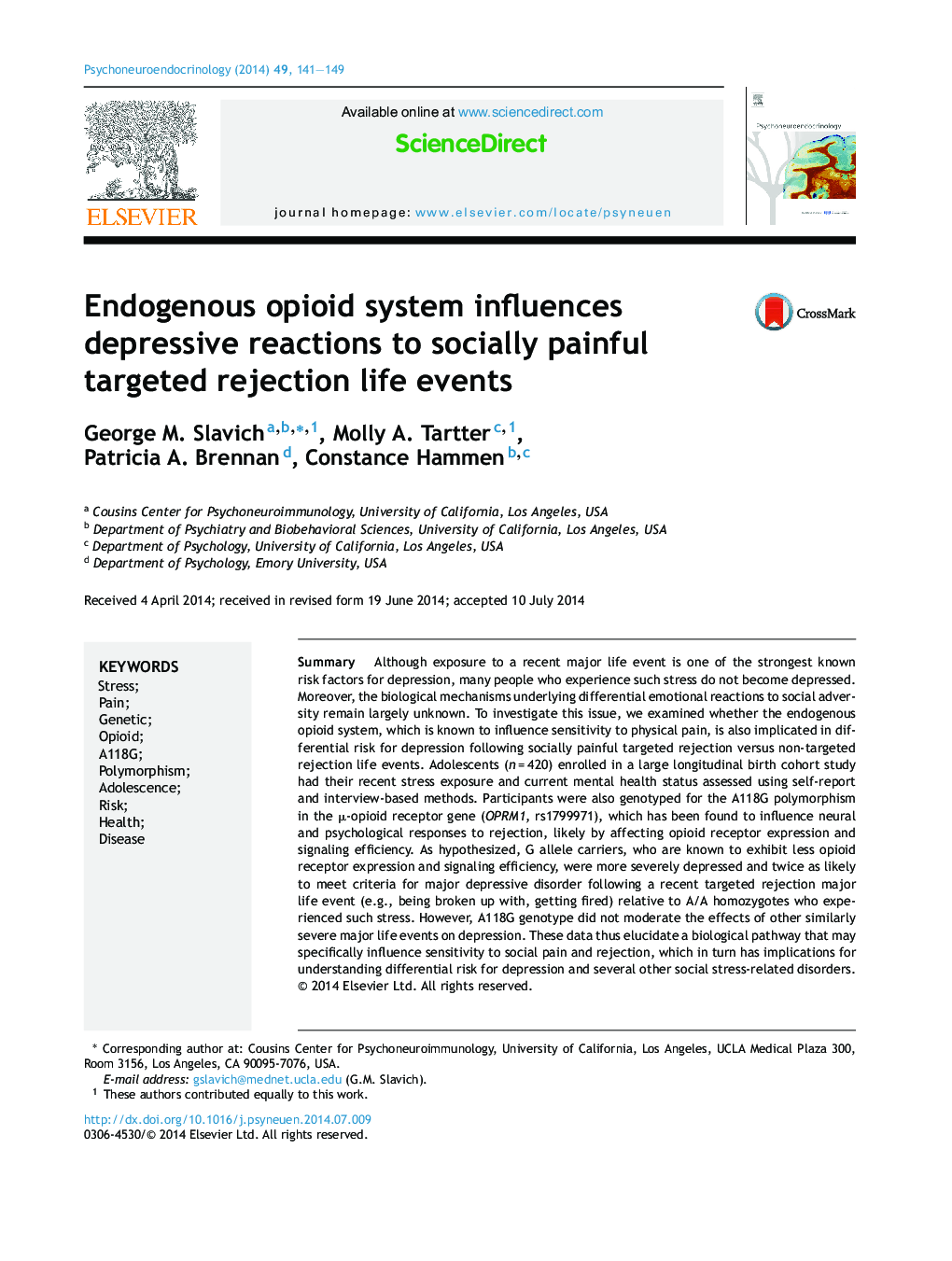| Article ID | Journal | Published Year | Pages | File Type |
|---|---|---|---|---|
| 6819533 | Psychoneuroendocrinology | 2014 | 9 Pages |
Abstract
Although exposure to a recent major life event is one of the strongest known risk factors for depression, many people who experience such stress do not become depressed. Moreover, the biological mechanisms underlying differential emotional reactions to social adversity remain largely unknown. To investigate this issue, we examined whether the endogenous opioid system, which is known to influence sensitivity to physical pain, is also implicated in differential risk for depression following socially painful targeted rejection versus non-targeted rejection life events. Adolescents (n = 420) enrolled in a large longitudinal birth cohort study had their recent stress exposure and current mental health status assessed using self-report and interview-based methods. Participants were also genotyped for the A118G polymorphism in the μ-opioid receptor gene (OPRM1, rs1799971), which has been found to influence neural and psychological responses to rejection, likely by affecting opioid receptor expression and signaling efficiency. As hypothesized, G allele carriers, who are known to exhibit less opioid receptor expression and signaling efficiency, were more severely depressed and twice as likely to meet criteria for major depressive disorder following a recent targeted rejection major life event (e.g., being broken up with, getting fired) relative to A/A homozygotes who experienced such stress. However, A118G genotype did not moderate the effects of other similarly severe major life events on depression. These data thus elucidate a biological pathway that may specifically influence sensitivity to social pain and rejection, which in turn has implications for understanding differential risk for depression and several other social stress-related disorders.
Related Topics
Life Sciences
Biochemistry, Genetics and Molecular Biology
Endocrinology
Authors
George M. Slavich, Molly A. Tartter, Patricia A. Brennan, Constance Hammen,
